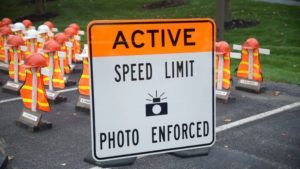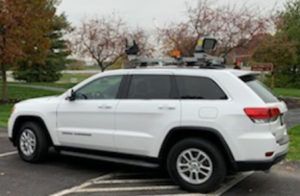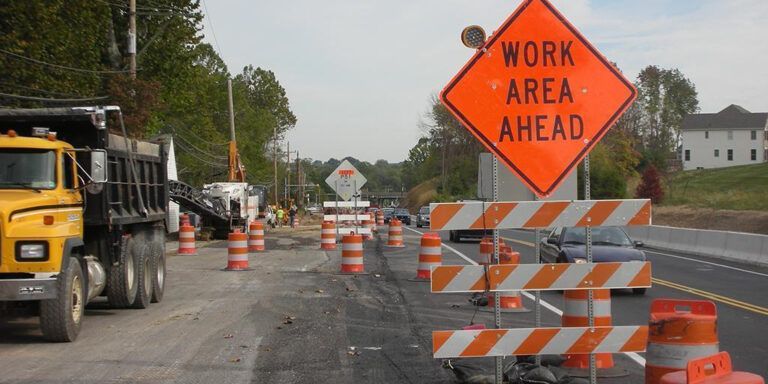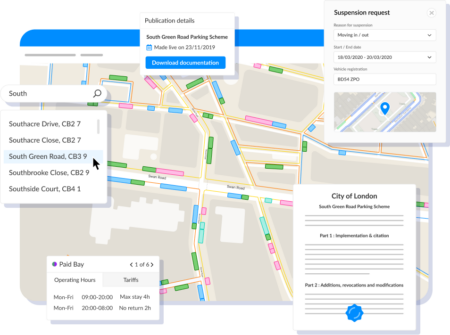A multi-agency partnership in Pennsylvania has begun the implementation of a statewide Automated Work Zone Speed Enforcement (AWZSE) pilot program to reduce work zone speeds, change driver behaviour, and improve work zone safety for workers and motorists.
The AWZSE program is a collaboration between the Pennsylvania Department of Transportation (PennDOT) and the Pennsylvania Turnpike Commission (PTC), in partnership with the Pennsylvania State Police (PSP), and was established by the Pennsylvania General Assembly in Act 86 of 2018. The initiative has been introduced to help combat the high number of crashes during highway construction projects. In 2018, there were 1,804 work zone crashes in Pennsylvania, resulting in 23 fatalities, and 43% of work zone crashes resulted in fatalities and/or injuries. Since 1970, PennDOT has lost 89 workers in the line of duty and the PA Turnpike has lost 45 workers since 1945.
 A minimum 60-day pre-enforcement pilot period will begin next week. During the pre-enforcement period, violations will not be issued. Enforcement is expected to begin in early 2020. Automated speed enforcement units will be deployed at a number of active work zones during the pre-enforcement period. These work zones will be in various types of projects and will initially focus on interstate and other limited access work zones, such as Interstate 78 in Berks County. Work zones are selected by a data-driven process to maximize the effectiveness of the systems and will be marked with signage in advance of the enforcement area.
A minimum 60-day pre-enforcement pilot period will begin next week. During the pre-enforcement period, violations will not be issued. Enforcement is expected to begin in early 2020. Automated speed enforcement units will be deployed at a number of active work zones during the pre-enforcement period. These work zones will be in various types of projects and will initially focus on interstate and other limited access work zones, such as Interstate 78 in Berks County. Work zones are selected by a data-driven process to maximize the effectiveness of the systems and will be marked with signage in advance of the enforcement area.
Pennsylvania’s AWZSE program uses vehicle-mounted systems to detect and record motorists exceeding posted work zone speed limits by 11mph (17.7km/h) or more using electronic speed timing devices. AWZSE systems are only operational in active work zones where workers are present. Once full enforcement begins, registered owners will receive a warning letter for a first offense, a violation notice and US$75 fine for a second offense, and a violation notice and US$150 fine for third and subsequent offenses. These violations are civil penalties only; no points will be assessed to driver’s licenses.
 “The Automated Work Zone Speed Enforcement program isn’t about issuing violations, it’s about saving lives,” said PennDOT secretary, Leslie S Richards. “Last year, 23 motorists were killed in a Pennsylvania work zone. Through this program we are urging motorists to slow down and pay attention while driving, especially in work zones where roadway conditions can change on a daily basis.”
“The Automated Work Zone Speed Enforcement program isn’t about issuing violations, it’s about saving lives,” said PennDOT secretary, Leslie S Richards. “Last year, 23 motorists were killed in a Pennsylvania work zone. Through this program we are urging motorists to slow down and pay attention while driving, especially in work zones where roadway conditions can change on a daily basis.”
PA Turnpike’s CEO, Mark Compton, said, “When a crash occurs in an active work zone, it’s just as likely to result in death or injury to a driver or passenger inside that vehicle. This program is about protecting everybody’s safety. If not for these workers in an active work zone, I ask you to slow down for yourself and other travellers.”
Major James Basinger, director of the PSP’s Bureau of Patrol, added, “We are committed to facilitating the efficient movement of traffic through work zones while ensuring the safety of drivers, passengers, and workers. The police will continue to work closely with our safety partners to explore how to best leverage evolving technology to make Pennsylvania’s roads safer.”





